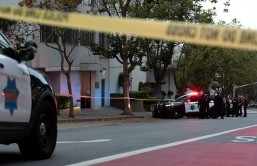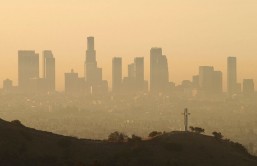Former shelter dog, JJ, can detect possible allergy triggers for his child companion Kaelyn Krawczyk "KK," 7, who was diagnosed with a rare allergy disease.
KK has been diagnosed with masyocytosis, a rare disease causing her body to produce large amount of mast cells which has a lot of inflammatory compounds. These compounds respond highly to allergens, making KK extremely allergic even to minor changes in her environment.
Patients with mastocytosis may suffer from blood pressure inconsistency, anaphylaxis, and facial flushing due to the body's reaction to the allergens.
Anesthesiologist at Duke University Medical Center, Dr. Brad M. Taicher who is working with JJ and KK told CBS News: "A normal patient with anaphylaxis knows what their triggers are. For KK, any countless number of things can trigger her mast cells to degranulate and release these mediators."
JJ helps KK monitoring possible allergy triggers surrounding her companion. When the dog senses a situation that may cause an allergic reaction, she was trained to turn around in circles. If the trigger gets worse, JJ will start barking to get an adult's attention. KK also deciphers the dog's signals and when she sees that JJ is starting to turn in circles or bark, she herself will get her EpiPen kit and inform an adult about her condition.
"JJ has made it possible for us to give KK a more normal life," Michelle, KK's mother told the News Observer.
The dog is not allowed to be in operating rooms but in some medical procedures performed on KK, he was allowed to sit and watch. JJ senses if the anaesthesia used for the girl will trigger allergic reactions. Professionals working on KK will act according to the dog's signals.
Dogs have been trained to aid people with different medical conditions but JJ is the first one to be used successfully for assisting patients with KK's condition.
"I don't think that is terribly surprisingly that both dogs and humans are far more complicated that we sometimes pretend," Taicher said. "We don't understand the interactions that are work, but we can always appreciate when we see them."








